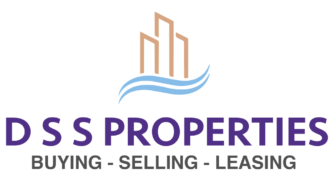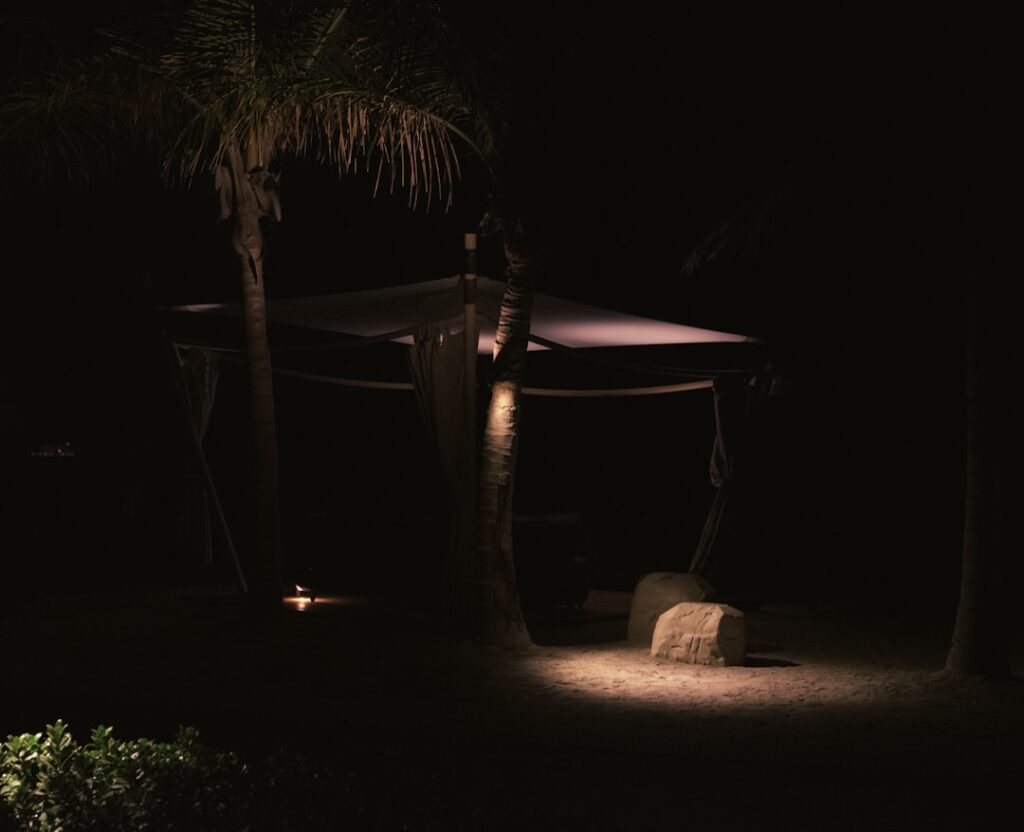Dubai’s real estate market has long been a focal point of global investment, characterized by its rapid growth and dynamic development. The city, known for its iconic skyline and luxurious lifestyle, has attracted investors from around the world, drawn by the promise of high returns and a vibrant economy. The real estate sector in Dubai is not merely a reflection of the city’s architectural ambitions; it is a critical component of its economic framework, contributing significantly to GDP and employment.
The market encompasses a diverse range of properties, from opulent villas and high-rise apartments to commercial spaces and retail developments, catering to both local and international buyers. The allure of Dubai’s real estate is further enhanced by its strategic location as a gateway between Europe, Asia, and Africa. This geographical advantage has positioned the city as a hub for business and tourism, fostering a robust demand for residential and commercial properties.
Additionally, the government’s pro-business policies, including tax incentives and freehold ownership options for expatriates, have created an inviting environment for foreign investment. As a result, Dubai’s real estate landscape is continually evolving, reflecting broader economic trends and shifts in consumer preferences.
Key Takeaways
- Dubai real estate market is a dynamic and rapidly growing sector with a diverse range of properties and investment opportunities.
- Current challenges in Dubai real estate include oversupply, fluctuating property prices, and changing market dynamics due to global economic conditions.
- Innovative solutions in Dubai real estate involve the development of mixed-use properties, flexible payment plans, and attractive incentives for investors and buyers.
- Technology integration in Dubai real estate is revolutionizing the industry through the use of blockchain, artificial intelligence, and virtual reality to streamline processes and enhance customer experience.
- Green initiatives in Dubai real estate focus on sustainable building practices, energy-efficient designs, and the implementation of green building certifications to promote environmental responsibility.
Current Challenges in Dubai Real Estate
Oversupply of Properties
Following a construction boom in the early 2010s, the market has seen an influx of new developments, leading to a surplus of residential units. This oversupply has resulted in declining property prices and rental rates, creating a challenging environment for investors and developers alike.
Fluctuating Economic Conditions
The COVID-19 pandemic, for instance, had a profound impact on the real estate sector, leading to temporary disruptions in construction and a slowdown in sales activity. While the market has shown signs of recovery, uncertainties surrounding global economic stability continue to pose risks. Additionally, geopolitical tensions in the region can affect investor confidence, further complicating the landscape for real estate transactions.
Navigating Potential Downturns
These factors necessitate a careful examination of market dynamics and a proactive approach to navigating potential downturns.
Innovative Solutions in Dubai Real Estate
In response to the challenges facing the real estate sector, stakeholders are increasingly turning to innovative solutions that can enhance efficiency and drive growth. One such solution is the adoption of mixed-use developments that combine residential, commercial, and recreational spaces within a single project. This approach not only maximizes land use but also creates vibrant communities that cater to diverse lifestyles.
For example, projects like Dubai Creek Harbour integrate residential units with retail outlets and leisure facilities, fostering a sense of community while providing residents with convenient access to essential services. Moreover, developers are exploring alternative financing models to attract investment and mitigate risks. Crowdfunding platforms have emerged as a viable option for raising capital for real estate projects, allowing smaller investors to participate in large-scale developments.
This democratization of investment can lead to increased liquidity in the market and provide developers with access to a broader pool of funds. By leveraging technology and innovative financing methods, stakeholders can navigate the complexities of the market while fostering sustainable growth.
Technology Integration in Dubai Real Estate
The integration of technology into Dubai’s real estate sector is transforming how properties are bought, sold, and managed. One notable advancement is the use of blockchain technology to streamline transactions and enhance transparency. By recording property transactions on a decentralized ledger, blockchain can reduce fraud and increase trust among buyers and sellers.
The Dubai Land Department has already begun implementing blockchain solutions to facilitate property registration and transfer processes, setting a precedent for other markets to follow. Additionally, virtual reality (VR) and augmented reality (AR) are revolutionizing property viewings and marketing strategies. These technologies allow potential buyers to experience properties remotely through immersive virtual tours, significantly enhancing the decision-making process.
For instance, developers can showcase off-plan projects using VR simulations, enabling clients to visualize their future homes before construction is completed. This not only saves time but also enhances customer engagement by providing an interactive experience that traditional marketing methods cannot match.
Green Initiatives in Dubai Real Estate
As global awareness of environmental issues grows, Dubai’s real estate sector is increasingly embracing green initiatives aimed at promoting sustainability. The government has set ambitious targets for reducing carbon emissions and enhancing energy efficiency across various sectors, including real estate. Developers are now incorporating sustainable building practices into their projects, utilizing eco-friendly materials and energy-efficient technologies to minimize their environmental footprint.
One prominent example is the Sustainable City project in Dubai, which aims to create a self-sufficient community powered by renewable energy sources. This development features solar panels, water recycling systems, and green spaces designed to promote biodiversity. By prioritizing sustainability in design and construction, developers not only contribute to environmental conservation but also appeal to a growing segment of environmentally conscious buyers who prioritize green living.
Smart Cities and Sustainable Development in Dubai
The concept of smart cities is gaining traction in Dubai as part of the broader vision for sustainable urban development. The Smart Dubai initiative aims to transform the city into a global leader in innovation by leveraging technology to enhance urban living. This includes integrating smart infrastructure into real estate developments, such as intelligent transportation systems, energy-efficient buildings, and connected public services.
For instance, the Dubai Internet City serves as a model for smart urban planning by providing state-of-the-art facilities for tech companies while promoting collaboration and innovation. The integration of smart technologies not only improves operational efficiency but also enhances the quality of life for residents by providing seamless access to services and amenities. As Dubai continues to evolve into a smart city, the real estate sector will play a crucial role in shaping sustainable urban environments that meet the needs of future generations.
Future Trends in Dubai Real Estate
Looking ahead, several trends are poised to shape the future of Dubai’s real estate market. One significant trend is the increasing demand for affordable housing options. As the population continues to grow and more expatriates seek residence in Dubai, there is a pressing need for diverse housing solutions that cater to various income levels.
Developers are responding by creating more affordable residential projects that maintain quality while being accessible to a broader demographic. Another emerging trend is the rise of co-living spaces that cater to millennials and young professionals seeking flexible living arrangements. These communal living environments offer shared amenities and foster social interaction among residents while providing cost-effective housing solutions.
As lifestyle preferences shift towards experiences over ownership, co-living developments are likely to gain popularity in urban areas like Dubai.
The Impact of Innovative Solutions on Dubai Real Estate
The landscape of Dubai’s real estate market is undergoing significant transformation driven by innovative solutions that address current challenges while paving the way for future growth. From embracing technology integration to prioritizing sustainability through green initiatives, stakeholders are adapting to changing market dynamics with agility and foresight. As these innovations take root within the sector, they not only enhance operational efficiency but also contribute to creating vibrant communities that reflect the aspirations of residents.
The impact of these innovative solutions extends beyond mere economic considerations; they foster a more sustainable approach to urban development that aligns with global trends towards environmental responsibility and social inclusivity. As Dubai continues its journey towards becoming a global hub for real estate investment, the emphasis on innovation will be crucial in ensuring that the market remains resilient and responsive to evolving demands. Through collaboration among government entities, developers, and investors, Dubai’s real estate sector is well-positioned to navigate challenges while capitalizing on opportunities that arise in an ever-changing landscape.
If you are looking for more information on Dubai real estate solutions, you may want to check out this article on Dubai Real Estate Services Agency Expectations. This article provides insights into what to expect when working with a real estate agency in Dubai. It can help you understand the process better and make informed decisions. Additionally, if you are considering selling a property in Dubai, you may find this article on selling property in Dubai with no commission helpful. It offers a hassle-free experience for those looking to sell their property. Lastly, if you are looking for the best areas to rent in Dubai, you may want to read this comprehensive guide on the best areas to rent in Dubai. It provides valuable information on different neighborhoods in Dubai to help you make the right choice.
FAQs
What are the different types of real estate solutions available in Dubai?
There are various types of real estate solutions available in Dubai, including residential properties (apartments, villas, townhouses), commercial properties (office spaces, retail spaces), and industrial properties (warehouses, factories).
What are the popular areas for real estate investment in Dubai?
Popular areas for real estate investment in Dubai include Downtown Dubai, Dubai Marina, Palm Jumeirah, Jumeirah Lake Towers, and Business Bay. These areas offer a mix of residential and commercial properties with high rental yields and potential for capital appreciation.
What are the legal requirements for purchasing real estate in Dubai?
Foreigners can purchase freehold properties in designated areas of Dubai. The legal requirements for purchasing real estate in Dubai include obtaining a residency visa, obtaining a no-objection certificate from the Dubai Land Department, and registering the property with the Dubai Land Department.
What are the financing options available for real estate investment in Dubai?
Financing options for real estate investment in Dubai include mortgage loans from local and international banks, developer financing, and private financing. The terms and conditions for financing options may vary based on the individual’s financial profile and the property being purchased.
What are the regulations for renting out properties in Dubai?
The regulations for renting out properties in Dubai include registering the lease agreement with the Dubai Land Department, obtaining an Ejari (tenancy) contract, and adhering to the rental cap set by the Dubai Real Estate Regulatory Agency. Landlords are also required to obtain a landlord’s permit and pay the necessary taxes on rental income.




